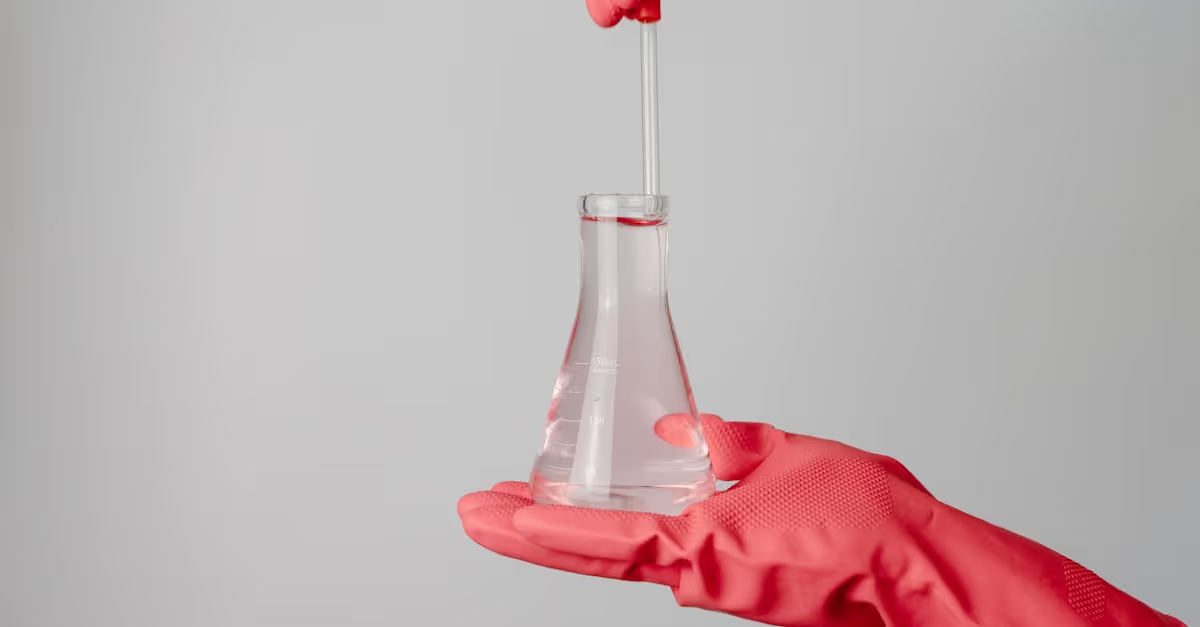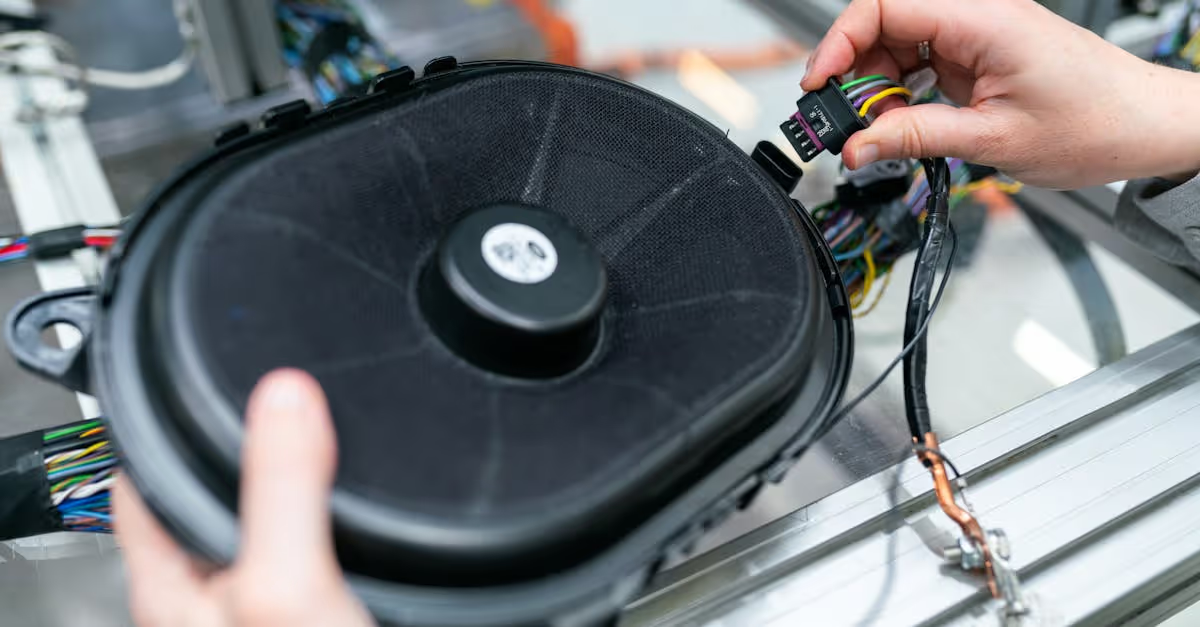Key Takeaways
- Importance of Water Testing: Regular water testing is essential for ensuring the safety and quality of drinking water, especially for households using private wells or those in areas prone to contamination.
- Types of Testing Services: Professional water testing includes various services such as drinking water testing, well water testing, and commercial water testing, each tailored to specific needs and potential contaminants.
- Understanding Costs: Water testing costs can vary widely, typically ranging from $50 for basic tests to over $500 for comprehensive assessments. Factors influencing pricing include test type, location, and service provider.
- Test Process Overview: The water testing process involves an initial consultation, guided sample collection, and timely analysis in a lab to assess water quality and identify contaminants.
- Proactive Approach to Water Safety: Regular testing helps monitor water quality trends, ensuring timely mitigation of potential health risks and fostering informed decisions about water filtration and purification solutions.
- Community Engagement: Sharing water quality results with neighbors promotes awareness of water safety issues, contributing to a collective effort for healthier communities.
Access to clean and safe water is crucial for our health and well-being. Did you know that nearly 10% of U.S. households rely on private wells, which often lack regular monitoring? That’s where professional water testing services come in. They ensure our water meets safety standards and helps identify potential contaminants.
In this guide, we’ll explore what to expect from water testing services, including the various types of tests available and the factors that influence costs. Understanding these aspects can empower us to make informed decisions about our water quality and safety. Let’s dive in and discover how we can protect ourselves and our families from waterborne hazards.
Overview of Water Testing Services
Water testing services play a critical role in safeguarding our health and the environment. These services help determine water quality by identifying contaminants and ensuring it meets safety guidelines. Understanding what to expect from these services aids us in making informed choices about our water supply.
Water testing can vary widely, but it typically includes checking for bacteria, heavy metals, pH levels, and other potential pollutants. Most basic tests cover common issues like E. coli and lead. More advanced panels can assess everything from industrial chemicals to pesticides. These comprehensive testing options help us grasp the overall quality of our water.
We should consider when to test our water. New homeowners should test after purchasing a property. Stakeholders with wells should routinely test at least once a year. Testing after major weather events like floods can also reveal unexpected contaminants. Awareness of these factors helps us maintain a proactive approach to water safety.
The process begins with choosing a professional service provider. Many companies offer easy online booking, often powered by software solutions to manage customer engagement effectively. This means we can conveniently schedule our tests, track results, and receive reports, all streamlined through user-friendly portals or mobile apps. Efficient service dispatch software ensures timely technician visits.
Costs for water testing can vary based on the number and type of tests conducted. Typically, basic tests range from $50 to $150, while comprehensive tests might cost from $200 to $500. Geographic location and service provider also influence pricing. Understanding these costs in advance prepares us for what to expect when engaging with water testing services.
Water testing companies utilize technician management software to optimize efficiency. Such tools enhance technician scheduling, enabling accurate appointment setting and prompt follow-ups. This automation reduces delays, ensuring swift results. With a mobile workforce management approach, technicians can access detailed testing guidelines in the field.
Investing in water testing services promotes the health and safety of our families and communities. Monitoring outcomes helps identify trends in water quality over time. It also confirms whether mitigation measures effectively reduce contamination levels.
Our cleaning and maintenance routines can also benefit from this information. Armed with test results, we can make informed decisions about filtration systems and other solutions to improve our water quality. Whether it's a simple home filter or advanced purification systems, understanding our water's condition guides these decisions.
Engaging with professional water testing services connects us to a community focused on health and safety. As we share findings and outcomes, we can spread awareness of water quality issues within our neighborhoods. Ultimately, choosing to test our water is a step toward creating a safer environment for all.
Exploring these services equips us with knowledge about our health needs. By embracing water testing, we take an active role in health advocacy within our homes. Let's keep our water clean, ensuring we always have safe drinking water available.
Types of Water Testing Services
Water testing services provide crucial insights into the quality of our water. Understanding the types available helps us make informed decisions about our health and safety. Here are the main types of water testing services we can utilize.
Drinking Water Testing
Drinking water testing assesses the safety of water we consume daily. Tests commonly check for pH levels, bacterial contamination, and heavy metals. We often want to know if our water contains harmful substances like lead or nitrates. Basic testing typically costs between $50 and $150, while more comprehensive panels may reach $500+. Regular testing helps monitor water quality, especially in households using well water or those concerned about contaminants. Engaging with a service that offers technician management software enhances our experience by ensuring quick results.
Well Water Testing
Well water testing is essential for residents relying on private wells. Unlike municipal supplies, well water isn't regularly monitored, making this testing crucial to our health. These tests typically check for bacteria, nitrates, and heavy metals. We can expect costs ranging from $100 to $200. Testing once a year, or after major weather events, promotes peace of mind. Utilizing mobile workforce management tools can simplify the scheduling process, making it easier to book tests. Remember, a little proactive care can go a long way in safeguarding our drinking water.
Commercial Water Testing
Commercial water testing is vital for businesses and industries ensuring compliance and safety. Businesses must meet standards for water quality in various settings, from restaurants to factories. Tests frequently assess bacteria, chemical pollutants, and other contaminants. The cost can range from $200 to $500+, depending on the extent of testing needed. Utilizing automated field service solutions helps streamline the process for businesses, improving efficiency. Investing in our water quality not only protects customers but also builds trust within the community.
Understanding these testing services equips us with the knowledge to advocate for clean water. By actively engaging with these options, we contribute to a healthier environment for ourselves and our families.
What to Expect From Professional Water Testing
Understanding professional water testing starts with knowing what to expect. We can anticipate a thorough process that focuses on our water quality and safety.
Initial Consultation
The process kicks off with an initial consultation. We discuss our testing needs, including the type of water source—like well or municipal—and any specific concerns such as contaminants or regulatory compliance. A great technician management software system helps organize this discussion, ensuring critical details get recorded. This initial chat sets the stage for reliable testing tailored to our situation.
Sample Collection Process
Professional services guide us in the sample collection process. This often involves filling specialized bottles with our water and completing a brief form with relevant information. The company usually provides clear instructions, making it straightforward. Samples are shipped to the lab for analysis, often using next-day delivery. Some services even allow us to drop off samples at a local location. With effective route management software, technicians optimize their routes for timely collections, ensuring freshness upon arrival at the lab.
Costs Involved in Water Testing Services
Understanding the costs involved in water testing services is essential for homeowners and businesses alike. These expenses can vary based on several factors.
Factors Influencing Costs
Several key elements impact the pricing of water testing services. Location plays a significant role; services in urban areas often charge more due to higher demand. The type of contaminants tested also affects costs. Basic tests for bacteria or nitrates typically cost less than comprehensive assessments for heavy metals or industrial chemicals. Service provider differences matter as well. Some companies may use advanced field service management software to streamline operations, which can influence pricing.
Even sample collection can add to overall fees if specialized equipment or methods are necessary. It's crucial for us to consider all these factors to get an accurate estimate that meets our specific needs.
Average Pricing for Different Tests
Water testing costs generally fall within a specific range. Basic tests, like checking for bacteria or nitrates, usually range from $50 to $150. Mid-level tests, which may include heavy metals like lead or copper, typically cost between $150 and $300. For comprehensive assessments, such as evaluating multiple contaminants or VOCs, prices can climb to $500 or more.
Businesses requiring commercial testing often face higher charges, ranging from $200 to $500 or more depending on the complexity of the tests required. Using technician scheduling tools can help businesses manage these tests more efficiently. Opting for package deals from service providers can sometimes lower costs, making it easier for us to maintain safe and healthy water.
Conclusion
Investing in professional water testing services is a crucial step toward ensuring the safety and quality of our water. By understanding what to expect and the costs involved, we can make informed choices that protect our health and the environment. Regular testing not only identifies potential contaminants but also empowers us to take action when necessary.
As we prioritize clean water access for ourselves and our communities, engaging with these services fosters awareness and promotes proactive measures. Whether we're homeowners or business owners, embracing water testing is an essential part of safeguarding our well-being and advocating for a healthier future. Let’s take that step together toward cleaner and safer water.
Frequently Asked Questions
What are water testing services?
Water testing services evaluate the safety and quality of water by checking for contaminants like bacteria, heavy metals, and pollutants. These tests are essential for households relying on private wells or those concerned about drinking water quality.
Why is water testing important?
Water testing is crucial for protecting health and the environment. It helps identify contaminants that can affect health and ensures access to clean, safe drinking water, ultimately fostering community awareness of water quality issues.
How often should I test my water?
New homeowners should test their water after purchasing a property, while well owners should conduct tests annually. Testing is also recommended after major weather events to ensure water safety.
What types of tests are available?
Common tests include basic assessments for bacteria like E. coli and heavy metals, as well as advanced panels for chemicals and pesticides. Specific needs will dictate which tests are necessary for your situation.
How much does water testing cost?
Costs vary depending on the type of test. Basic tests range from $50 to $150, mid-level tests from $150 to $300, and comprehensive tests can exceed $500. Factors like location and provider influence these prices.
What can I expect during the testing process?
The process begins with a consultation to discuss your testing needs. Professionals guide you through sample collection, provide instructions for filling bottles, and ensure timely shipping to the lab for analysis.
How do I choose a professional water testing service?
Look for companies that offer convenient online booking, efficient service management, and positive reviews. Evaluate their testing methods, reliability, and transparency regarding costs to find the best fit for your needs.
What should I do with the test results?
Use the results to inform decisions about water filtration systems or other solutions to improve water quality. Results also help identify trends and confirm the effectiveness of any mitigation measures you implement.






